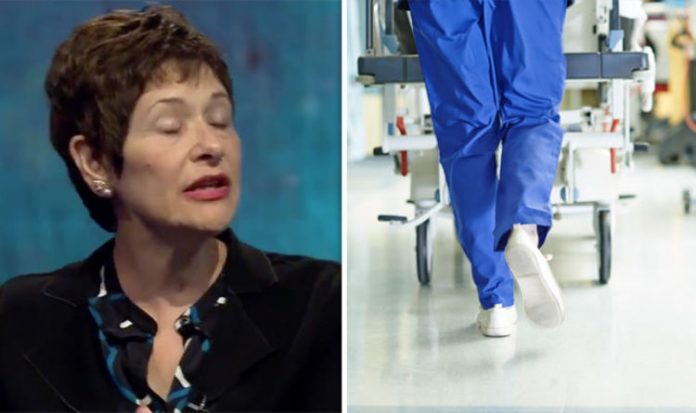[ad_1]
Professor Carol Propper of Imperial College London told the flagship programme that those with healthier “genetics” will become less willing to subsidise healthcare for people who are less healthy.
She said that the “social solidarity” that underpins the NHS is at risk.
Adding: “What will happen is people will know more about their diseases, people argue that’s the reason for having a social solidarity system like the NHS.
“I think this misses a point. When people know about their genetics, some will know they are less risky.
“An NHS system relies on the fact that people are willing to cross-subsidise.
“From the healthy to the well, from the rich to the poor.
“If lots of people suddenly discover that they’re less risky than everyone else, they’re not going to want to do this kind of subsidisation.”
The lecturer suggested that a social insurance system could be the saviour of the NHS instead because it could encourage us to “look after our health more”.
She said: “There’s a real issue here, the straw man of the US put up against the NHS.
“Obviously, we believe in social solidarity here, but you could tweak the system.
“I wouldn’t be against moving more towards a social insurance system of the kind that you have in the Netherlands.
“The reason is, we’re going to have to look after our health more.
“We need incentives to look after our health more”
Professor Propper’s comments didn’t go down well on social media and respondents on Twitter were resoundingly against her suggestions.
One poster said: “Less risky genetics don’t equal a healthy, illness or accident-free life.
“Plus, most chronic conditions are triggered not by genes, but by diet and environmental factors.”
Another asked how care could be provided for disabled children.
“What happened if people catch a terrible disease or are injured beyond repair or are otherwise made disabled?
“What if their children become ill or are born disabled?”
Her comments come in the week that the NHS is celebrating its 70th birthday.
England’s health innovation chief claims the service is on the brink of a “healthcare revolution” which will transform millions of lives through technology.
Professor Tony Young speaking to the Express predicted a glowing future for the NHS, saying: “It is at the forefront of healthcare innovation – this is the most exciting time in medicine I have ever known.”
The launch of a new recruitment drive will run alongside services commemorating the NHS’ achievements this week, as British healthcare celebrates this monumental milestone.
[ad_2]







